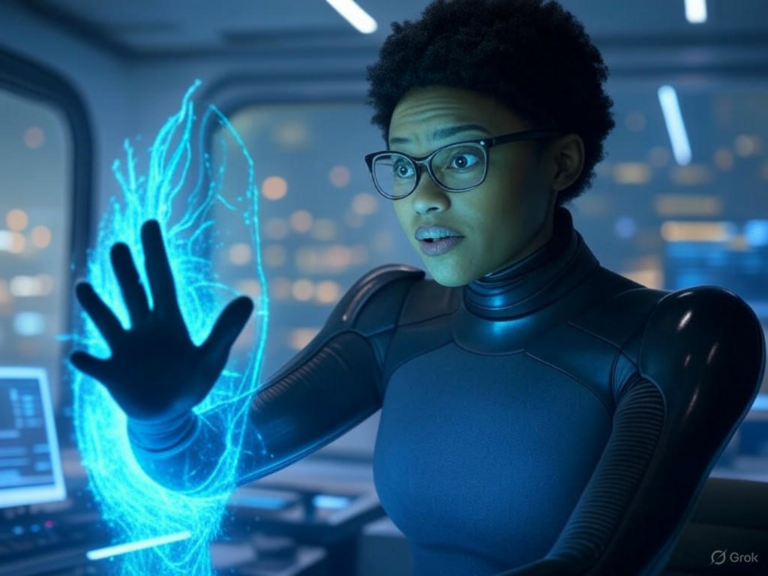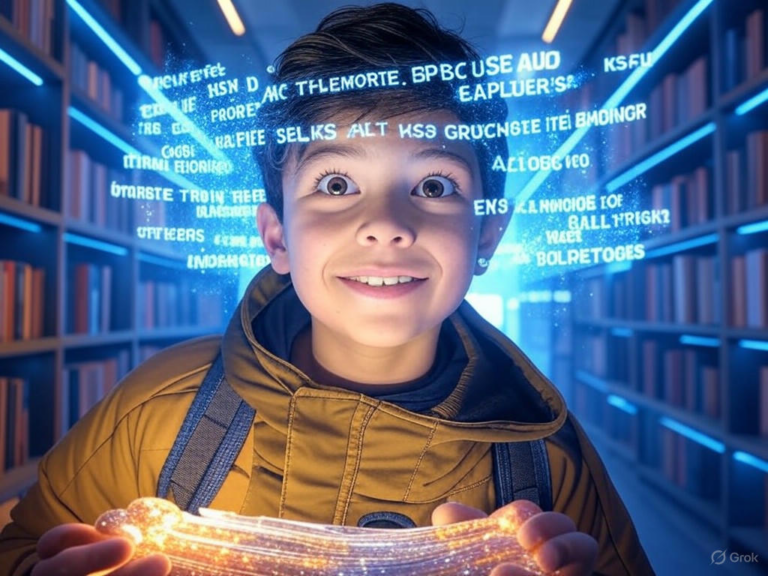
AI in Gaming: Hero or Villain in the Future?
Introduction
AI in gaming is revolutionizing the industry, turning once-static worlds into dynamic, adaptive experiences that keep players hooked. From enhancing game design to creating smarter non-playable characters (NPCs), this technology promises to elevate storytelling and player engagement to new heights. Yet, as AI in gaming advances, it raises a key question: Will it emerge as a heroic innovator or introduce villainous challenges that could reshape the industry in unexpected ways?
The Current State of AI in Gaming
AI in gaming has evolved from simple scripted behaviors to sophisticated systems that learn and adapt in real time. In 2025, it’s estimated that one in three game developers are leveraging generative AI for tasks like creating content and optimizing workflows, while over half of gaming companies have integrated it into areas such as production and community management. This surge reflects a broader trend where AI in gaming is no longer a novelty but a core component, driving everything from procedural generation to personalized experiences.
Have you ever played a game where enemies seemed to outsmart your strategies? That’s the power of modern AI at work, making virtual worlds feel alive and responsive.
AI Use Cases in Modern Games
One of the most exciting aspects of AI in gaming is how it’s transforming everyday gameplay. Dynamic NPCs, for instance, use AI to make decisions that feel human-like, leading to more unpredictable and immersive scenarios. Games like those in the latest open-world adventures showcase this, where characters adapt based on your actions, keeping you on your toes.
Other applications include procedural content generation, which builds vast, unique worlds on the fly, and AI-driven player personalization that tweaks storylines or difficulty to match your style. Automated testing and bug fixing speed up development, while features like localization and chat moderation ensure games are safer and more accessible globally. AI in gaming isn’t just about flashy tech—it’s about making experiences more enjoyable and inclusive for everyone.
How AI is Revolutionizing Game Development
Generative AI has turned game development into a faster, more creative process, allowing studios to prototype ideas quickly and scale projects without massive teams. Tools powered by AI in gaming can generate code, artwork, animations, and even narrative elements, freeing developers to focus on big-picture innovation. This shift is particularly helpful for indie creators, who can now compete with larger studios by using AI to handle repetitive tasks.
- Adaptive Difficulty: Imagine a game that senses when you’re struggling and eases up, or ramps up the challenge to keep veterans engaged—AI in gaming makes this seamless.
- Rapid Prototyping: Developers can whip up concept art or entire environments in minutes, cutting down on time and costs while sparking new ideas.
- Automated Playtesting: By running thousands of simulated playthroughs, AI spots issues like balance problems early, saving headaches down the line.
This evolution in AI in gaming highlights how technology can democratize creativity, but it also prompts us to consider: At what point does automation overshadow human ingenuity?
Immersive Player Experiences with AR, VR, and AI
AI in gaming is pushing the boundaries of immersion, especially in augmented reality (AR) and virtual reality (VR) environments. These technologies work hand-in-hand to deliver real-time interactions, from recognizing objects in your surroundings to adapting content based on your emotions or movements. In 2025, this means more personalized adventures that feel tailor-made for you.
- Voice Recognition: Picture commanding a character with natural speech—AI in gaming makes this intuitive, opening doors for players with disabilities.
- Wearable Integration: Devices like VR headsets use AI to track your reactions, adjusting the game to heighten excitement or reduce fatigue.
- Mobile Enhancements: On-the-go gaming gets a boost with AI optimizing graphics and performance, so you enjoy high-quality experiences on your phone.
If you’ve tried AR games like Pokémon GO, you know how AI in gaming can blend the digital and real worlds in ways that feel magical—yet it’s just the beginning of what’s possible.
AI in Cloud and Blockchain Gaming: Expanding Horizons
Beyond traditional setups, AI in gaming is driving innovations in cloud-based and blockchain platforms. Cloud gaming uses AI to deliver smooth, high-fidelity experiences without needing top-tier hardware, making premium titles accessible to more people. Meanwhile, blockchain games employ AI for managing in-game economies and ensuring fair play, though this area is still maturing.
For example, AI can handle matchmaking in blockchain environments, pairing players based on skill and preferences to reduce frustration. As AI in gaming integrates with these technologies, it could create more equitable and engaging ecosystems, but it also brings up questions about data security and ownership.
Heroic Benefits of AI in Gaming
The advantages of AI in gaming are undeniable, starting with its ability to craft ultra-realistic worlds. Smarter NPCs and dynamic environments make games more believable and challenging, drawing players in like never before. Then there’s personalization—AI tracks your habits to deliver custom stories and difficulty levels, turning every playthrough into a unique adventure. What gamer wouldn’t appreciate a title that evolves with them?
- Immersive Realism: AI in gaming creates worlds where every interaction feels meaningful, from adaptive enemies to evolving landscapes.
- Personalized Journeys: By analyzing player data, AI crafts narratives that resonate, offering endless replayability.
- Faster Development: Studios save time on routine tasks, allowing more room for creativity and innovation.
- Data-Driven Insights: AI provides valuable analytics to fine-tune games, helping developers spot trends and improve monetization strategies.
In short, AI in gaming has the potential to be a true hero, enhancing enjoyment while making development more efficient.
The Potential Villains: Risks and Concerns in AI Gaming
However, AI in gaming isn’t without its downsides, and some critics worry it could lead to homogenized content that lacks originality. For instance, if AI generates most assets, we might see a decline in diverse, human-crafted stories, potentially impacting jobs in the industry. Other issues include AI biases that could perpetuate stereotypes or create unpredictable behaviors, eroding player trust.
- Bias and Unpredictability: Poorly designed AI might reinforce harmful tropes, making games less welcoming for certain audiences.
- Lack of Human Creativity: Relying too heavily on AI could diminish the unique flair that human designers bring, as seen in debates over automated art tools.
- Ethical Dilemmas: From data privacy in personalized experiences to moderation challenges, AI in gaming demands careful ethical oversight.
- Security Risks: In blockchain-integrated games, AI could introduce vulnerabilities, like exploits that hackers might target.
These concerns remind us that while AI in gaming offers excitement, we must address these issues head-on to prevent it from becoming a villain.
Industry and Community Perspectives on AI in Gaming
The gaming community is buzzing about AI, with many studios embracing it as a game-changer, though not without reservations. Events like the Game Developers Conference highlight how AI in gaming is being adopted for efficiency, but discussions often center on job security and ethical guidelines. Developers I’ve spoken with appreciate the tools, yet they’re calling for balanced approaches to protect creative roles.
For example, a panel at GDC 2025 explored how AI could augment, rather than replace, human efforts—what do you think: Is this the path forward?
AI in Gaming: Hero vs. Villain Breakdown
| Aspect | Heroic Potential | Villainous Risks |
|---|---|---|
| Gameplay Experience | Dynamic, immersive worlds with intelligent NPCs | Biased or repetitive scenarios that feel generic |
| Game Development | Accelerated workflows and accessible tools for all creators | Potential job losses and reduced originality in designs |
| Player Engagement | Customized stories and challenges that boost retention | Overly predictive elements that strip away surprise |
| Security and Ethics | Improved community safety through smart moderation | Privacy breaches and exploitation in online features |
The Future of AI in Gaming: Striking a Balance
Looking ahead, the future of AI in gaming seems collaborative, blending technology with human insight to drive advancements in AR, VR, and beyond. As cloud gaming expands, AI will make high-quality experiences more accessible, while blockchain could ensure fair digital ownership. To make the most of this, developers should focus on ethical AI practices, like transparent data use and diverse training sets.
Here’s a tip: If you’re a gamer, stay involved by testing beta features and sharing feedback—it helps shape how AI in gaming evolves. Ultimately, whether AI becomes a hero or villain depends on us; with thoughtful integration, it could lead to richer, more inclusive worlds.
Wrapping Up: Your Take on AI in Gaming
AI in gaming stands at a crossroads, offering incredible potential while posing real risks. It’s up to creators, players, and the industry to guide its path toward positive outcomes. As we embrace these changes, let’s prioritize innovation with integrity—what’s your view on AI’s role? Share your thoughts in the comments, explore more on our site, or check out related posts to dive deeper.
References
1. “The Impact of AI on Gaming” from Engati. [Dofollow Link: Engati Blog]
2. GDC 2025 State of the Industry Report. [Source: https://gdconf.com/gdc-2025-state-game-industry]
3. YouTube video on AI innovations. [Title: AI in Gaming Trends, Source: https://www.youtube.com/watch?v=lWY2q90lbWg]
4. Unity’s 2025 Mobile Gaming Insights. [Source: https://unity.com/blog/2025-mobile-gaming-trends-industry-perspectives]
5. Tech Research Online on Gaming Trends. [Source: https://techresearchonline.com/blog/top-gaming-technology-trends-and-innovations/]
6. Additional resources from Storyboard Hero and various YouTube discussions. [Sources: https://storyboardhero.ai/ai-writing-tools, https://www.youtube.com/watch?v=luFBmRyzZow, https://www.youtube.com/watch?v=KjFyhV1Lu3I]
*Meta Description:* Is AI in gaming a hero or villain? Discover its impact on game design, NPCs, player experiences, and industry trends in this insightful exploration.
*Suggested URL Slug:* /ai-in-gaming-hero-or-villain
AI in Gaming, future of gaming, AI NPCs, game development, immersive gaming, AI in game design, gaming trends, AI risks, personalized gaming, ethical AI gaming.AI in Gaming, future of gaming, AI NPCs, game development, immersive gaming, AI in game design, gaming trends, AI risks, personalized gaming, ethical AI gaming







